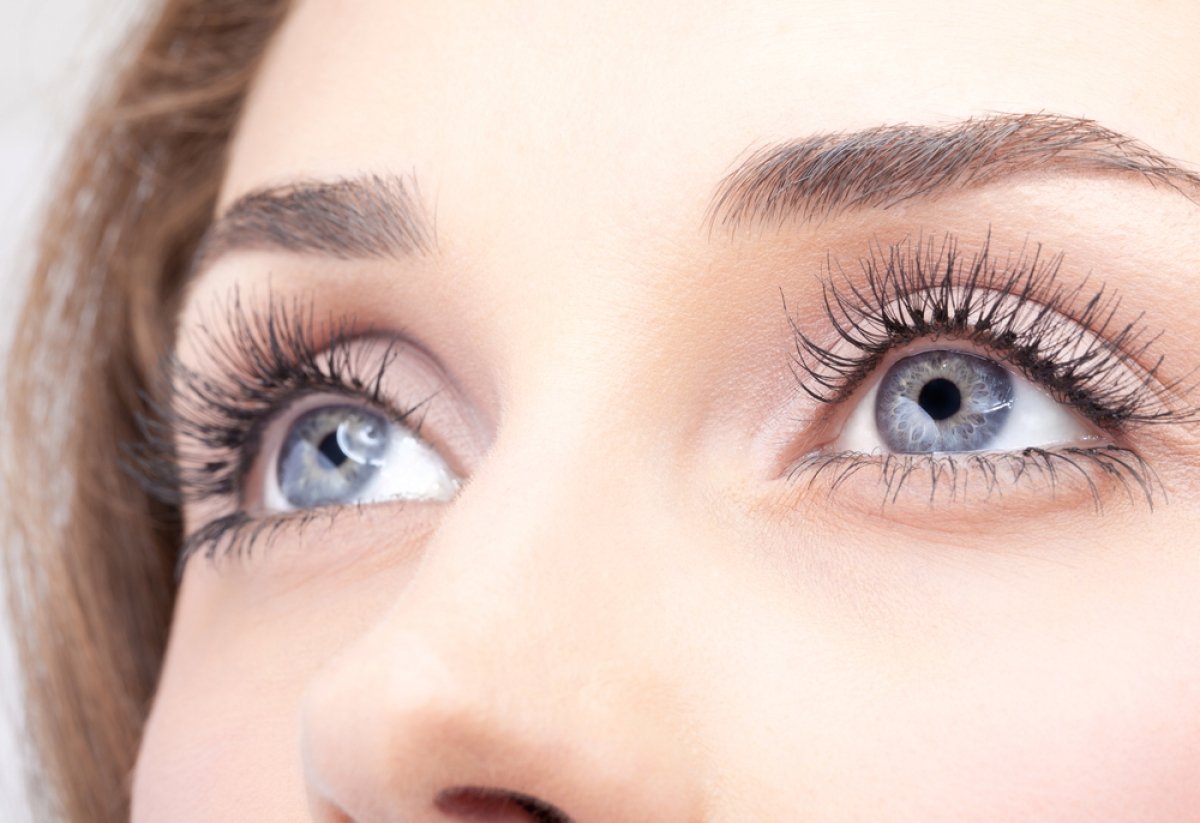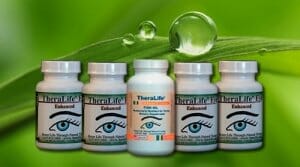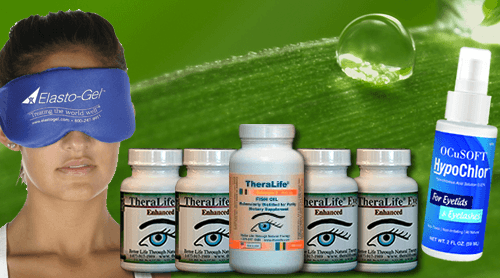Itching Eyes
For many people, the warmth and beauty of spring are accompanied by irritated, burning and, sometimes, swollen eyes and eyelids.
These symptoms, often attributed to allergy season, can be caused by other factors in the environment.
If you are one of the many who suffer from itchy eyes, understanding the cause is the key to treatment and relief.
Itching eyes – Allergies or Infection?
Here’s how you can tell.
Allergies
Whether ragweed or pet dander is the culprit, allergens affect the eyes in the same way.
These allergies can be triggered by pollen or pet dander.
Irritants like dust and smoke, or products such as lotions, makeup or contact lens solutions can also cause symptoms similar to those of eye allergies.
Infections
Eye infections can come from many causes — virus, bacteria, parasite or fungus — and the symptoms vary with the cause.
In general, infections have a longer list of symptoms when compared to allergies.
You can minimize your risks for both eye allergies and infections.
Keeping windows shut and other easily implemented strategies can help you survive seasonal allergies , while an air purifier can help you cope with indoor allergies.
What are Itching Eyes?
Itching eyes, also called Ocular Pruritis, affects people and is often considered an eye care issue.
The condition can arise from various conditions including allergy and infection.
Itching eyes are common and are often caused by irritated or itching eyes.
We also examine when people need specialized care when it comes to diagnosis.
Sometimes certain conditions may lead to itchy eyes and others causing other symptoms.
Atopic Keratoconjunctivitis can cause inflammation of the keratoconjunctiva (the membrane covering the cornea).
Causes of itching eyes
Most people experience itchy eyelids. Itching eyes can be caused from a wide range of causes, including red eyes or itchy eyelids.
Itchy eyes are termed ocular pruritus.
Causes of itcing eyes include: dry eye syndrome — when you do not produce enough of the right kind of tears to keep the surface of your eye moist and comfortable an object or chemical in your eye blepharitis — inflammation of the eyelids, often caused by an infection.
Eczema
If you have eczema , a form of dermatitis, around your eyes this too can cause itching.
Dry Eyes
Dry eye syndrome is a condition that has fairly straightforward treatment options as long as it is in its early stages.
Early detection is vital to treat dry eye syndrome, as it can worsen if the problem is not addressed.
Watery eyes
Dry eye includes dry or watery eyes and eye irritation.
Contact Lenses
If you wear contact lenses, it’s important to change them as often as prescribed. Allergens as well as bacterial products can stick to soft contact lenses.
If you wear contact lenses, keep your eyes lubricated often with artificial tears.
Make sure to rub your contact lenses during cleaning every night.
Wash the case and change the solution inside every day. Do not “top off” with solution.
Start with a clean case and clean solution every time you remove your contact lenses.
Consult with your eye doctor to consider a new replacement schedule for your contact lenses if the irritation does not lessen.
Daily disposable contact lenses may also be an option.
Allergies
Summer is an expected time to experience allergies, primarily due to the increase in pollen in the air.
You know the classic signs, sneezing, coughing, and, of course, itchy eyes.
The body reacts to the triggers by releasing histamine, causing the blood vessels in the eye to dilate and irritating the nerve endings so the eyes water.
Once allergy symptoms have been found, you should contact the doctor for help finding the best possible solution for you.
Pink eye
Conjunctivitis (pink eye) is the most common eye infection, caused by a virus or bacteria. Either way, it’s easily spread.
Frequent hand washing is just one way to help prevent pink eye and other contagious diseases.
Allergic conjunctivitis is more common at certain times of the year, although you can still have it all year round.
Blepharitis
Blepharitis – Red and itchy eyes may result from an inflammation of the eyelids known as blepharitis .
It occurs when the little oil glands at the base of your eyelashes become blocked.
Sometimes just keeping your eyelids clean is enough to resolve blepharitis symptoms, which may also include watery eyes and swelling.
Blepharitis won’t usually cause vision loss, but it can be a chronic problem.
Itching eyes relief
Anti-allergy Eyedrops or Oral Medications.
For many people, allergy relief eyedrops, or oral medications that contain antihistamines or mast cell stabilizers, can ease symptoms.
These can be obtained over-the-counter or your doctor can prescribe them.
Aritificial tears
Frequent use of chilled over-the-counter, lubricating eye drops can relieve symptoms.
Over-the-counter artificial tears also can help keep eyes moistened and flush out allergens.
Some actually work to prevent symptoms by preventing the allergic reaction from getting started.
Your doctor may suggest short-term medications to help control inflammation, such as steroid or anti-inflammatory eye drops.
For infections
Viral infections generally clear up on their own, but cold compresses and lubricating eye drops can minimize symptoms.
Your doctor may prescribe antibiotic eye drops to treat a bacterial eye infection.
For eye infections caused by fungi and parasites, the medication will depend on what’s causing the problem.
Your eye doctor can help sort that out.
Getting quick diagnosis and treatment is the key when you have irritated eyes.
No matter what’s causing the problem, your eye doctor can help you find the right treatment and the relief you need.
Dry eyes
You also may need to increase your water intake to give your body the water it needs to produce tears.
If you need medical intervention, there several different types of treatment.
These include: Drugs that stimulate tear production
Inserts that slowly dissolve into artificial tears.
Plugs in your tear drainage ducts that prevent tears from draining out of your eyes
Gland expression therapy to unclog your meibomian glands
Prokera® biologic corneal bandage – Prokera® Corneal Bandage for Dry Eye
The Prokera® corneal bandage is a dry eye treatment that heals the eye’s surface. Then, the Prokera® device gets inserted into your second eye, and you follow the same procedure.
TheraLIfe Dry Eye Treatment That Works
Allergies
Some medications also may help you become less prone to attacks of itchy eyes in the future, especially if symptoms are due to seasonal allergies.
Applying a clean, cold, damp washcloth over your closed eyes also may help alleviate the severity of itchy eyes.
The most effective itchy eye treatments are those that directly address the cause.
Allergy Immunotherapy
A treatment called sublingual immunotherapy involves daily administration of allergy drops at home.
You are treated with the allergens you are sensitized to, and over time, become more tolerant of those allergens.
If these treatments do not help, a visit to your eye doctor can help determine if something else is the cause of your allergies.
Don’t rub your itching eyes!
Remember that in addition to any treatment you receive, the best way you can help prevent worsening a case of itchy eyes is to avoid touching or rubbing them.
Taking the easiest measure is often a very tough exercise: Avoid scratching your eye. When you brush your already rubbed skin, you may be allergic to pollens or other pet debris. Constant rubbing on the eyes may cause the cornea to crack and lead to pain.
References
The Itchy Eye: Diagnosis, Management of Ocular Pruritis,” “What Is Bacterial Keratitis?” American College of Allergy, Asthma & Immunology: “Eye Allergy.” Cleveland Clinic:
“Itchy, Red Eyes? How to Tell If It’s Allergy or Infection.” Johns Hopkins Medicine:
“Blepharitis.” Seattle Children’s Hospital: “Eye — Pus or Discharge.” The Nemours Foundation:
“Pinkeye (Conjunctivitis).” The Ohio State University Wexner Medical Center: “Picking your eye boogers could lead to infection,” “Itchy eyes: causes.





